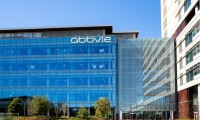-
Amgen and MSD-backed start-up wins $10m for drug and device development
- Source: drugdu
- 137
- December 2, 2023
-
Pepper wins $6.5m to develop ‘transomic’ drug discovery platform
- Source: drugdu
- 92
- December 2, 2023
-
AbbVie diversifies oncology portfolio with $10.1 bn ImmunoGen acquisition
- Source: drugdu
- 97
- December 2, 2023
-
Lilly Puts Potential $660M on the Line for Protein-Protein Interaction Blockers
- Source: drugdu
- 156
- December 1, 2023
-
Eli Lilly advances small molecule drug portfolio with Prism Biolab partnership
- Source: drugdu
- 98
- December 1, 2023
-
MS Expands Cardio Partnership with Avidity in Potential $2.3B Deal
- Source: drugdu
- 102
- November 30, 2023
-
Citing Ongoing Drug Shortages, Biden Administration Invokes Defense Production Act
- Source: drugdu
- 115
- November 30, 2023
-
FDA grants second orphan drug designation to Priothera’s mocravimod
- Source: drugdu
- 206
- November 29, 2023
-
AbbVie’s epcoritamab gets one step closer to follicular lymphoma approval
- Source: drugdu
- 94
- November 29, 2023
-
EirGenix and Sandoz win EU approval for Herceptin biosimilar
- Source: drugdu
- 173
- November 26, 2023
your submission has already been received.
OK
Subscribe
Please enter a valid Email address!
Submit
The most relevant industry news & insight will be sent to you every two weeks.













